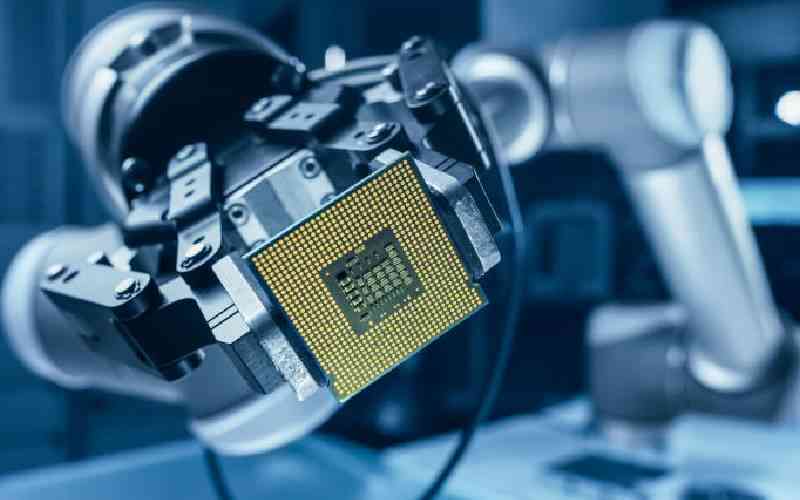By Alex Kiprotich
Motorists used to drink driving are once again on notice. A taskforce on alcoblow has recommended police to reintroduce the device.
Taskforce chairman Kirirro wa Ngugi says the reintroduction comes with even stiffer penalties for offenders. The team has recommended a set of rules and regulations to the Transport Minister for gazettement.
A report released by the Taskforce for Development of Standards for Use of Passive Alcohol Sensors says while blood samples of private motorists can have a small percentage of alcohol, those for public service vehicle drivers must not have any trace of the substance.
On the type of the sensors, the taskforce mandates Kenya Bureau of Standards to choose breathalyzer, intoxilyzer, alcosensor III or IV and standardise it for local roads.
"Regardless of the type, each device has a mouthpiece and a tube through which one blows air. The breath testing devices shall be determined and approved by the Kenya Bureau of Standards," reads the report.
Anybody convicted under the set regulations shall be liable to a fine not exceeding Sh20,000 and a driving licence suspension for a period not exceeding six months, the team recommends.
Subsequent convictions
But for subsequent convictions, the penalty is harsher. A second conviction will see the victim’s driving licence suspended for one year and the fine rising up to Sh50,000. For the third, the offender is liable to imprisonment for more than six months and the licence cancelled for five years.
"For any offence of driving or attempting to drive while over the prescribed alcohol limit, there is a mandatory record of the offence as a basis for progressively severe fines and disqualification," reads the report.
However, the report gives police the discretion of detaining first offenders at the police station to sober up and release them.
The device that was a nightmare for many motorists was first introduced in 2004. Several drivers were arrested, charged and fined in courts for driving while under the influence of alcohol.
It raised public outcry before transport stakeholders and beer manufacturers moved in court to challenge its hygiene among other issues. They claimed the devices could spread respiratory infections such as tuberculosis.
Obvious suspects
The High Court later outlawed the gadget, forcing the Government to go back to the drawing board and re-strategise on its implementation to reduce road accidents related to drink driving.
The new rules provide any motorist who refuses to be screened using the digital breathalyzer commits an offence and will be suspected to have taken alcohol.
It requires motorist flagged down by police officers for the screening to cooperate.
"A person who without reasonable excuse fails to provide a specimen of breath when required to do so is guilty of an offence," the report reads.
It further says obvious suspects would include motorists who speed, fail to observe road safety signs, those found without fastened safety belts or those with defective car lights. Such suspects will be required to take the breath test.
Police will also administer roadside screening breath test to motorists involved in an accident, those who drive erratically, walk unsteadily before getting into the car or those the police have reasonable grounds to suspect they might be drunk.
"If the results of the preliminary tests are above the prescribed limit, the police shall demand further two breath specimens at the police station, where evidential breathalyzer is available," says the report.
No motorist would however be purely convicted purely on the evidence of the roadside breath test.
 The Standard Group Plc is a multi-media organization with investments in media
platforms spanning newspaper print operations, television, radio broadcasting,
digital and online services. The Standard Group is recognized as a leading
multi-media house in Kenya with a key influence in matters of national and
international interest.
The Standard Group Plc is a multi-media organization with investments in media
platforms spanning newspaper print operations, television, radio broadcasting,
digital and online services. The Standard Group is recognized as a leading
multi-media house in Kenya with a key influence in matters of national and
international interest.
 The Standard Group Plc is a multi-media organization with investments in media
platforms spanning newspaper print operations, television, radio broadcasting,
digital and online services. The Standard Group is recognized as a leading
multi-media house in Kenya with a key influence in matters of national and
international interest.
The Standard Group Plc is a multi-media organization with investments in media
platforms spanning newspaper print operations, television, radio broadcasting,
digital and online services. The Standard Group is recognized as a leading
multi-media house in Kenya with a key influence in matters of national and
international interest.









